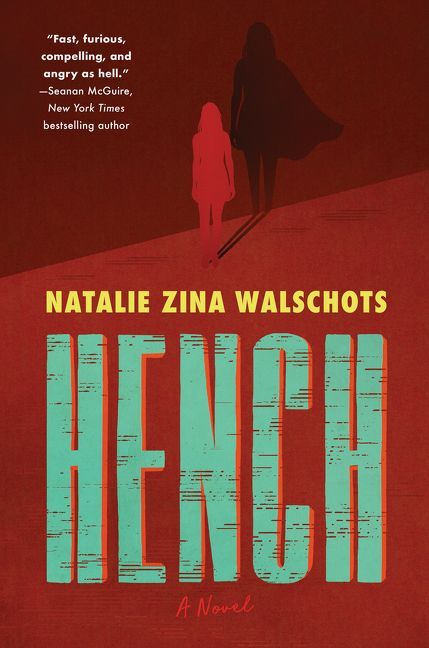Review: HENCH by Natalie Zina Walschots
As promised, here’s a slightly expanded version of the review I started writing for the NYTBR before learning that it had already been covered by someone else. I just want everyone to read this wonderful book.

I expected Natalie Zina Walschots’ Hench (William Morrow, hardcover, $27.99) to be a high-concept, light-hearted punch-up, the literary equivalent of leaning back and putting your feet up on the desk of superhero movie franchises. It surprised me completely.
Anna Tromedlov is a hench, a temp-agency worker who does data entry for supervillains. Her fellow temp and best friend, June, has minor superpowers; Anna is just good at spreadsheets. But when Anna is drafted into being part of the televised entourage for a small-time supervillain named the Electric Eel, things turn suddenly, shockingly dark, and a glancing encounter with big-name hero Supercollider leaves her with a shattered femur and six months of convalescence.
Maimed, unemployed, and living on June's couch, Anna becomes obsessed with cataloguing the damage heroes do to civilians, and as she crunches the numbers, begins to see superheroes in terms of natural disasters. To June's dismay she begins publishing her findings on a blog, and draws the attention of Supercollider's nemesis, Leviathan, who offers her a job — not another temp contract, but a permanent salaried position, with benefits.
There’s just so much here. It’s so unusual to me for superhero fiction to really dwell in the reality of disability, the utter grinding mortality of enduring injury; even with the top-tier health insurance and physical therapy Leviathan provides, Anna will always walk with a cane. Everything feels hyper-real without ever turning cynical: this is a book allergic to flinching, and will instead zero in on conflict, contradiction, hypocrisy, and examine them with startling honesty and compassion. Anna’s friendship with June is acerbic, difficult, and furiously loving; Anna’s relentless self-awareness is refreshing. This is a book that loves women and values women’s relationships with each other, glories in their complexities and challenges, makes narrative meat of them, and demonstrates their capacity for devastating, identity-shaping heartbreak.
Hench could have remained the bleak comedy about offices and the gig economy that its first 30 pages offered, and I would have been perfectly content. Instead, Walschots delivers a book that’s dark and honest, sharp and raw, full of visceral tenderness and breathtaking insight. Hench belongs in a lineage of superhero prose fiction that includes Robert Mayer’s Superfolks (which it surpasses) and Samit Basu’s Turbulence (which it equals), and is one of the best books I read in 2020. I rarely hope for sequels to books that function beautifully as standalones, but am actively longing for one here.
Member discussion